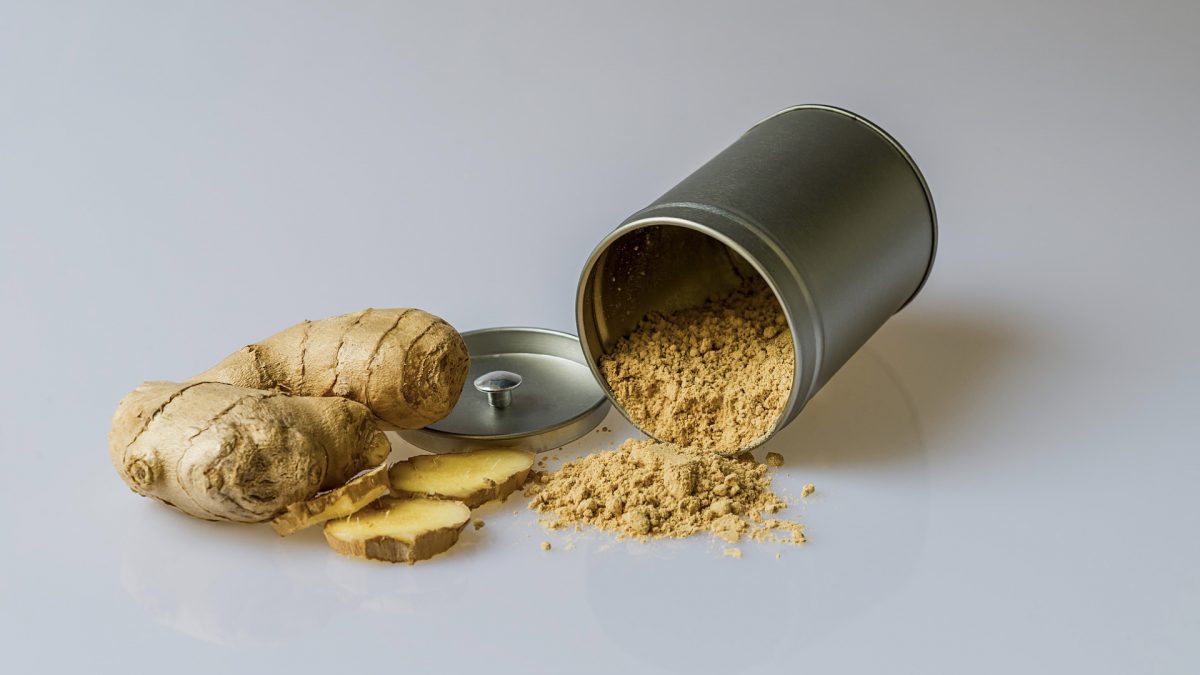Ginger is most famous for its role in preventing and alleviating nausea and vomiting. There are now so many studies that there are reviews of reviews. Just a half teaspoon of powdered ginger “is associated with a 5-fold likelihood of improvement” in morning sickness in early pregnancy. (See my video Natural Treatments for Morning Sickness for more on this.) Ginger has also been shown to help with motion sickness, improve postoperative nausea and vomiting, prevent antiretroviral-induced nausea and vomiting during HIV treatment, and was said to be a “miracle” against chemotherapy-induced vomiting.
In a randomized, double-blind, placebo-controlled clinical trial of ginger for breast cancer chemotherapy, chemo-induced vomiting was relieved in all phases—the acute phase within 24 hours of the chemo, two to three days after, and even before chemo sessions with what’s known as anticipatory vomiting. (After a few chemo treatments, the body knows what’s coming and starts throwing up at just the thought of the next session.) Anticipatory nausea can’t seem to be controlled by drugs, even the fancy new ones that can cost 10,000 times more than ginger, which comes in at about two pennies per dose and may work even better in some ways.
Ginger can also help with pain. One-eighth of a teaspoon of powdered ginger, which costs just one penny, was found to work as well as the migraine headache drug Imitrex, without the side effects. (See my video Ginger for Migraines for more.)
Speaking of pain, my video Ginger for Nausea, Menstrual Cramps, and Irritable Bowel Syndrome discusses that it may also be as effective as ibuprofen for alleviating menstrual cramps. Painful periods are exceedingly common and can sometimes cause severe suffering yet have been “virtually ignored” by pain management researchers and practitioners. Four randomized controlled trials, however, have been published on ginger for menstrual pain, and all four showed significant benefit when ginger was taken during the first few days of periods. Effective doses ranged from about a third of a teaspoon a day to a full teaspoon a day, but because they all seemed to work, one might as well start out with the penny-a-day dose.
As a side benefit, ginger can dramatically reduce heavy flow, which is one of the most common gynecological problems for young women. We know there are pro-inflammatory foods that may contribute to heavy menstrual bleeding, so how about trying an anti-inflammatory food like ginger? Heavy menstrual bleeding is defined as more than a third of a cup (80 milliliters), but all the study subjects started out much higher than that. Just an eighth teaspoon of powdered ginger three times a day starting the day before their period cut their flow in half, and it seemed to work better each month they tried it, providing a highly effective, cheap, easy-to-use, safer treatment for menstrual blood loss and pain.
So, ginger works for migraines and menstrual cramps, but just because it may be effective for many types of pain doesn’t mean it’s necessarily efficacious for all pain. For example, what about intestinal cramps? Is ginger effective for the treatment of irritable bowel syndrome (IBS)? The answer is yes, dropping IBS severity by more than 25 percent. But, so did the placebo. So, the real answer is no—it is not effective for the treatment of IBS, yet “[g]inger is one of the most commonly used herbal medicines for irritable bowel syndrome (IBS).” Silly people, don’t they know it doesn’t work any better than a sugar pill? Or, from another perspective, are they smart for using something that offers relief 53 percent of the time and doesn’t risk the adverse effects of some of the drugs with which doctors may harm one person for every three they help?
If placebos are so safe and effective, should doctors prescribe them? I discuss the pros and cons in The Lie That Heals: Should Doctors Give Placebos?.
What does work for IBS? See my videos:
- Kiwifruit for Irritable Bowel Syndrome
- Cayenne Pepper for Irritable Bowel Syndrome and Chronic Indigestion
- Peppermint Oil for Irritable Bowel Syndrome
What else can women do to make their periods more tolerable? See:
- Saffron for the Treatment of PMS
- Plant-Based Diets for Breast Pain
- Flaxseeds for Breast Pain
- Dietary Treatment for Painful Menstrual Periods
- Fennel Seeds for Menstrual Cramps and PMS
- Benefits of Ginger for Menstrual Cramps
For more on ginger, check out:
- Reducing Radiation Damage with Ginger and Lemon Balm
- Ginger for Migraines
- Natural Treatments for Morning Sickness
In health,
Michael Greger, M.D.
PS: If you haven’t yet, you can subscribe to my free videos here and watch my live, year-in-review presentations:
- 2012: Uprooting the Leading Causes of Death
- 2013: More Than an Apple a Day
- 2014: From Table to Able: Combating Disabling Diseases with Food
- 2015: Food as Medicine: Preventing and Treating the Most Dreaded Diseases with Diet
- 2016: How Not To Die: The Role of Diet in Preventing, Arresting, and Reversing Our Top 15 Killers
